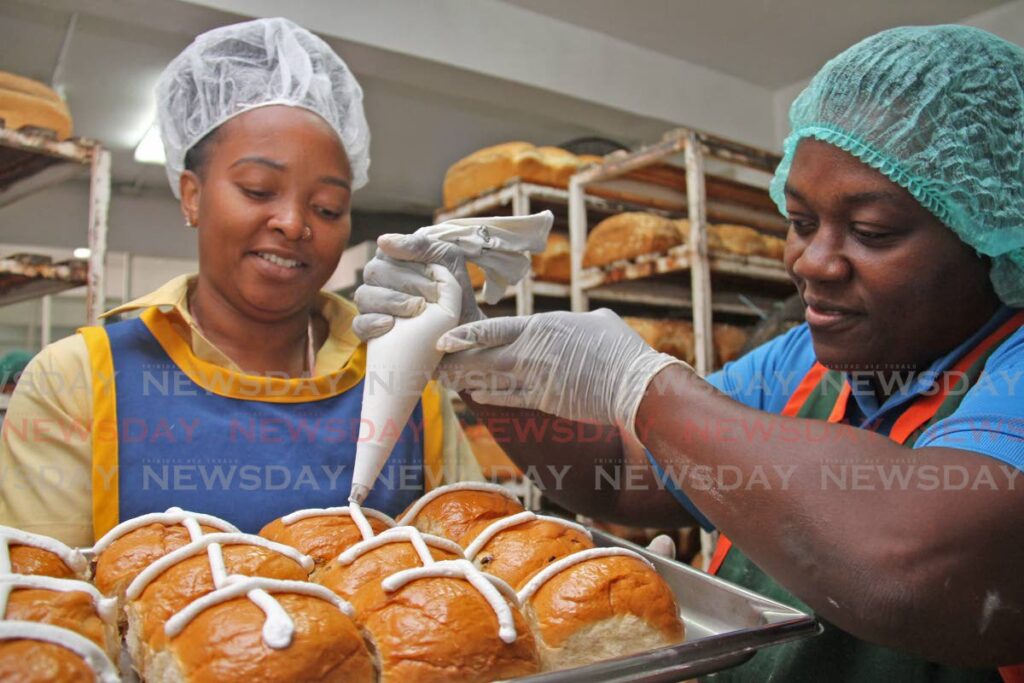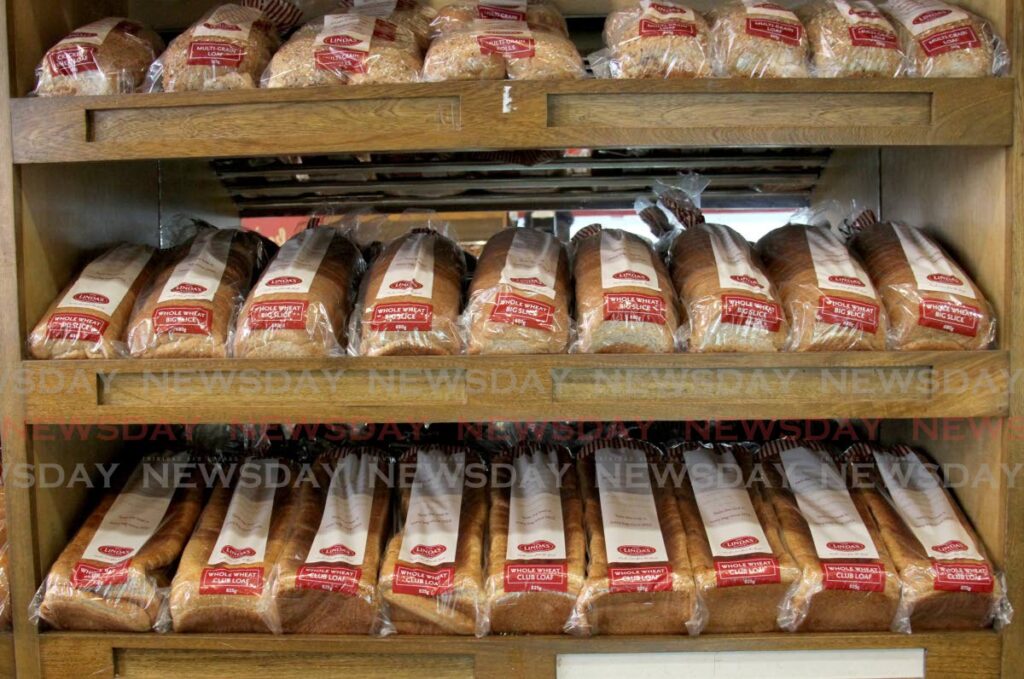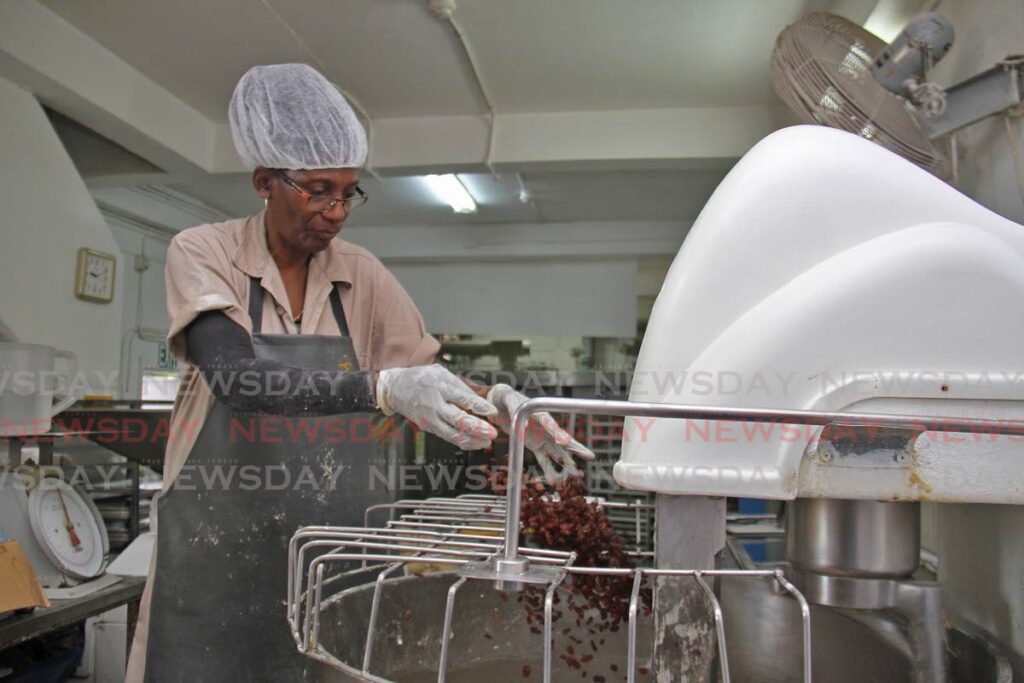Bakeries rise again, sales near to pre-pandemic days

One of the busiest seasons for bakeries is here once again as customers are making their way back to buy their favourite baked goods for the Easter holidays, at almost the same pace as pre-pandemic days. Bakery owners say there's a sense of normalcy as supplies, production and purchasing, retail prices and profit have begun to stabilise.
Gregory Laing, the owner of Puff N Stuff in San Fernando, and Peter George, the owner of Linda’s Bakery chain, said getting flour at a better price came after National Flour Mills (NFM) engaged in the forward-buying of wheat in 2022. Seeing that, it was easier for the food industry to determine what would happen this year.
Forward-buying involves buying goods or services in bulk in advance of when it is actually needed.
It should be noted that NFM recently reported that it earned $532.8 million last year compared to $441.6 million in 2021.
With this business strategy in mind, Laing and small-scale baker Selena Khan, of Cupcake Faerie, decided to do the same and buy directly from the suppliers of ingredients to avoid being price gouged by wholesalers.
Laing said, “What we noticed is happening with a lot of our inputs, especially with margarine and mayonnaise, they tend to be bought by wholesalers from the manufacturers in large quantities and the wholesalers put a 25 per cent mark-up on it.”
He urged other bakeries, especially smaller-scale ones, to be on the lookout and plan their spending properly else they will end up in a deficit.
Khan said she was unaware of these mark-ups and for quite some time, she fell victim to price-gouging.
“I thought moving in the direction of purchasing wholesale would be better, as the demand increased we said we needed to buy these things in bulk. But when we did a comparison we saw that we were paying more and we would restock all the time, especially during Christmas which is a peak season.”

She said it was only after the Christmas season did she see the great increase she had to endure blindly. Now, she ensures she gets her products from the suppliers.
Laing added, “What we have started doing was double our orders. For example, we used to buy 50 cases of mayonnaise a month, but now we take 100 cases and reorder when we hit 50 cases. So we have to give ourselves, I would say a month’s buffer to make sure we get back stock at the manufacturing or distributing prices rather than wholesalers.”
Laing warned that are many wholesalers in the industry. He used mayonnaise as an example and said each wholesaler may buy around 400 cases of mayonnaise leaving unaware business owners to pay a 25 per cent markup.
“We saw that trend and we have planned for that now. We must have a larger cash flow now to put out more, so the inventory levels can be higher and we won’t have to inadvertently buy from wholesalers.”
He added that the issue now is not about sourcing supplies, but rather finding the proper timing for purchasing. With Laing keeping up on his stocks and avoiding high mark-ups, he assured customers that he doesn’t anticipate a price increase for his baked good in the next eight months, unless something happens that cannot be planned for. The last time Puff N Stuff saw a price increase was six months ago when supplies were limited and prices went up by 20 per cent.
Khan’s Cupcake Faerie she said her problem is a bit different. She has been plagued with bugs found in her bulk supply of flour bought directly from the manufacturers when the country is warmer. When this happens, and it has happened a few times to her, she has to stop all operations for at least eight weeks.
“You wouldn’t want that getting into anything else. As soon as you realise this is the challenge, you immediately stop because it is a health-and-safety protocol. If we keep getting the same problem after going to other suppliers then we know we have to desist and keep trying using small packs from other places.”
Khan said if that smaller pack is clean then she would have to use that supplier, but buying those small packs greatly affects the price she now has to pay.
“The good thing is that because my business allows pre-booking like months in advance, I’m usually able to say up front, that I can discontinue for now because we don’t have that many bookings in this particular time.”
But if there is a booking during that time, she will ensure to spend the extra for the clean flour for a greater quality product.

As for George, he said, “There is still ongoing pricing pressure on inputs because of the global environment that we are unfortunately victim to and there’s not much we can do about it. We still import around 80 per cent of the items we consume, so we are still bound by international circumstances.”
On his end, he has faced great difficulty with foreign exchange to access goods.
“What we are seeing now in the wide food business is that atrophying of supply from the perspective that the supply chain focuses on the items that are fast moving.”
He said it’s a natural reaction to economical retraction whereby a supplier that has a limited amount of capital and foreign exchange would much rather bring a product that will move quickly and deliver the best margins.
“Just imagine with the breadth of products we (Linda’s) have, the different types of additives, grains and colours of cake toppings, that’s where the challenge lies. It’s been challenging accessing the items to continue making the products and we had to start using alternative items which affect the quality.”
He said the type of butter, cherries, dried fruits, vanilla and cola essence that goes into their hot cross buns – a staple in many households for Good Friday – may not be the same brands they are accustomed to buying and using.
“This year, it’s a bit different, we didn’t get the same brands we use, it gets the job done, but it’s not the same flavour and the price is not that different.”
Khan said she has faced similar issues, but with sourcing larger bottles of essences and proper packaging. She said she has to buy a lot of boxes for the cakes herself online rather than getting it through a distributor. Khan said this is because it saves time and it ensures she gets the products needed because she has had to do without one particular cake box size for a while.
Both George and Khan have no anticipated price increases for their baked goods.
Apart from those issues, George said the business itself has been manageable as he and others are trying to navigate back to some level of economic normalcy, in spite of the unstable inflationary environment.
George also shared some future plans with Business Day. He said, during the lockdowns, he saw an influx of small scale grab-and-go businesses on social media which continue to be convenient. With this in mind, and noticing that shoppers prefer to buy everything at one location, he said Linda’s will soon be found at groceries.

Puff N Stuff only has one location, 40 Circular Drive, San Fernando which Laing said is probably the best scenario for a bakery.
“We advise bakeries to have one location and expand on that one location. Maybe if the building next door becomes available, you buy it and maybe you can even get more parking.”
Laing said one location also allowed for Puff N Stuff’s factory to be attached to the sales area.
“At a bakery, you can never tell how much you’re going to sell of any particular item on any given day. You have an average, but I wouldn’t be sure if I’ll sell 150 beef pies or 250 beef pies, so having that helps.”
He said baking at Puff N Stuff starts at 2.30 am and finishes at 6 pm and the factory being right there is convenient since the bakery carries around 60 products and if one is sold out, it can be replenished within an hour or an hour-and-a-half. He said it also reduces having to throw out any leftovers because now the bakers can be responsive to the customers.
Laing said also suggested to other businesses that they should have parking attendants or a security guard at the outside of the bakery.
“Customers have to feel safe in these times. So many vagrants are approaching customers as they are walking in and they would be worried about being stolen from.”
Laing said he pays around $20,000 a month for this kind of security service to customers which may take a financial toll on some businesses, but he has deemed it necessary.

Comments
"Bakeries rise again, sales near to pre-pandemic days"